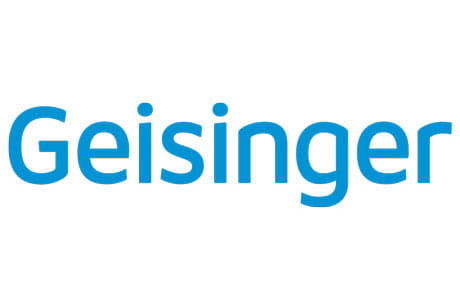Researchers find AI can predict new atrial fibrillation, stroke risk
Research team includes Geisinger, Tempus scientists
DANVILLE, Pa. – A team of scientists from Geisinger and Tempus have found that artificial intelligence can predict risk of new atrial fibrillation (AF) and AF-related stroke.
Atrial fibrillation is the most common cardiac arrhythmia and is associated with numerous health risks, including stroke and death. The study, published in Circulation, used electrical signals from the heart—measured from a 12-lead electrocardiogram (ECG)—to identify patients who are likely to develop AF, including those at risk for AF-related stroke.
“Each year, over 300 million ECGs are performed in the U.S. to identify cardiac abnormalities within an episode of care. However, these tests cannot generally detect future potential for negative events like atrial fibrillation or stroke,” said Joel Dudley, chief scientific officer at Tempus. “This critical work stems from our major investments in cardiology to generate algorithms that make existing cardiology tests, such as ECGs, smarter and capable of predicting future clinical events. Our goal is to enable clinicians to act earlier in the course of disease.”
To develop their model, the team of data scientists and medical researchers used 1.6 million ECGs from 430,000 patients over 35 years of patient care at Geisinger. These data were used to train a deep neural network—a specialized class of artificial intelligence—to predict, among patients without a previous history of AF, who would develop AF within 12 months. The neural network performance exceeded that of current clinical models for predicting AF risk. Furthermore, 62% of patients without known AF who experienced an AF-related stroke within three years were identified as high risk by the model before the stroke occurred.
“Not only can we now predict who is at risk of developing atrial fibrillation, but this work shows that the high risk prediction precedes many AF-related strokes,” said Brandon Fornwalt, M.D., Ph.D., co-senior author and chair of Geisinger’s Department of Translational Data Science and Informatics. “With that kind of information, we can change the way these patients are screened and treated, potentially preventing such severe outcomes. This is huge for patients.”
Geisinger and Tempus continue to work together to advance precision medicine using practical applications of artificial intelligence. Funding for this project was provided by Geisinger Clinic and Tempus.
Geisinger has an exciting research environment with more than 50 full-time research faculty and more than 30 clinician scientists. Areas of expertise include precision health, genomics, informatics, data science, implementation science, outcomes research, health services research, bioethics and clinical trials.
About Tempus
Tempus is a technology company advancing precision medicine through the practical application of artificial intelligence in healthcare. With one of the world’s largest libraries of clinical and molecular data, and an operating system to make that data accessible and useful, Tempus enables physicians to make real-time, data-driven decisions to deliver personalized patient care and in parallel facilitates discovery, development and delivery of optimal therapeutics. The goal is for each patient to benefit from the treatment of others who came before by providing physicians with tools that learn as the company gathers more data. For more information, visit tempus.com.
About Geisinger
Geisinger is among the nation’s leading providers of value-based care, serving 1.2 million people in urban and rural communities across Pennsylvania. Founded in 1915 by philanthropist Abigail Geisinger, the non-profit system generates $10 billion in annual revenues across 134 care sites - including 10 hospital campuses, and Geisinger Health Plan, with 600,000 members in commercial and government plans. The Geisinger College of Health Sciences educates more than 5,000 medical professionals annually and conducts more than 1,400 clinical research studies. With 26,000 employees, including 1,600 employed physicians, Geisinger is among Pennsylvania’s largest employers with an estimated economic impact of $14 billion to the state’s economy. On March 31, 2024, Geisinger became the first member of Risant Health, a new nonprofit charitable organization created to expand and accelerate value-based care across the country. Learn more at geisinger.org or connect with us on Facebook, Instagram, LinkedIn and X.

For media inquiries:
Ashley Andyshak Hayes
Marketing Strategist
Marketing & Communications
570-271-8081
arandyshakhayes@geisinger.edu
